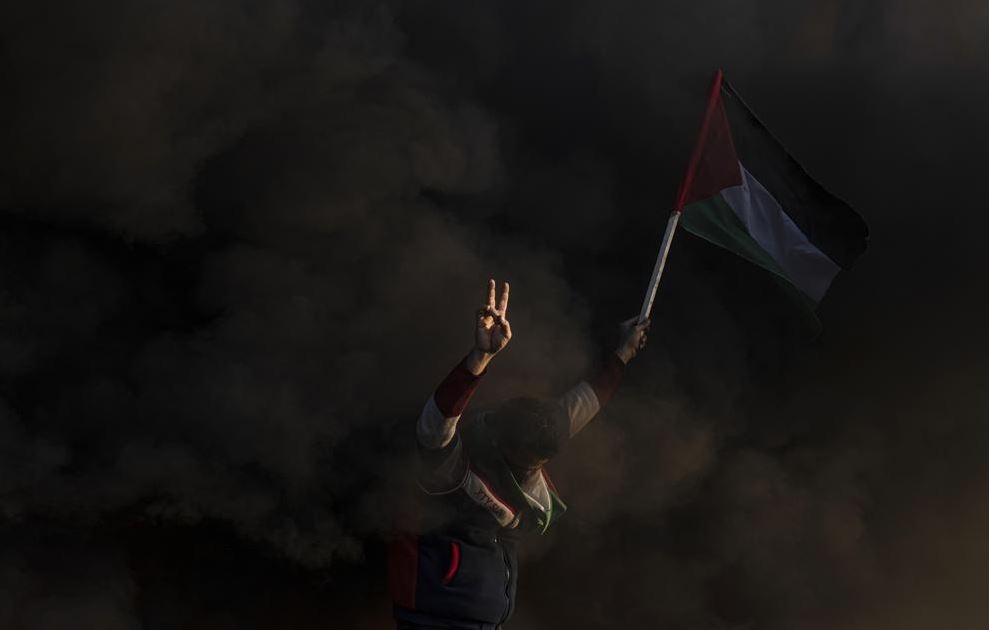Two rockets were fired from Gaza early on Friday morning, prompting Israel to retaliate with airstrikes, increasing tensions further. Palestinian sources said that Israeli troops murdered nine Palestinians on Thursday, including at least seven terrorists and a 61-year-old woman, in the worst single event in the occupied West Bank in two decades.
The Israeli military stated that it is Iron Dome missile defense system intercepted both missiles. It was the first strike of its kind from Hamas-controlled territory since the restoration of Prime Minister Benjamin Netanyahu to the office at the helm of a far-right administration that has sworn to take a harsh stance against Palestinian terrorism.
The raid on the Jenin refugee camp and the rocket firing heighten the likelihood of a significant flare-up in Israeli-Palestinian hostilities and throw a shadow over U.S. Secretary of State Antony Blicken’s upcoming trip to the area.
Raising the stakes, the Palestinian Authority said that it will sever relations between its security services and Israel in a joint effort to restrain Islamic extremists. Previous threats have been short-lived, due in part to the benefits the authority derives from the relationship and also to pressure from the United States and Israel to preserve it.
The PA already has minimal control over West Bank enclaves and practically none over militant strongholds like the Jenin camp. However, the declaration might clear the path for Israel to intensify actions that it deems necessary to avert strikes.
The Islamic terrorist organization Hamas, which administers Gaza, has previously promised retaliation for the attack. In the past, violent escalation in the West Bank has prompted retaliatory rocket fire from the Gaza Strip, which has in turn prompted Israeli bombings on the isolating and impoverished area.
Israeli attacks early on Friday morning targeted training facilities for Palestinian terrorist organizations, according to the military. According to reports from witnesses and local media, Israeli drones launched two missiles against a terrorist camp in the central Gaza Strip. Typically, drone strikes act as a precursor to heavier airstrikes by fighter planes.
Israeli soldiers went on heightened alert on Thursday as Palestinians crowded the streets of the West Bank, chanting in support of Jenin. President Mahmoud Abbas ordered three days of mourning, and villagers created a mass burial for the deceased in the refugee camp.
PA spokesperson Nabil Abu Rudeineh stated that Abbas had chosen to end security coordination “because of the recurrent assault against our people and the undermining of signed agreements,” alluding to the 1990s Oslo peace accords.
In 2020, the PA severed security coordination with Israel over Netanyahu’s plan to annex the occupied West Bank, which would make the establishment of a future Palestinian state virtually difficult. Six months later, however, the PA resumed collaboration, indicating the relationship’s financial significance and the Palestinians’ relief upon the election of President Joe Biden.
The senior U.S. diplomat for the Middle East, Barbara Leaf, stated that the administration was profoundly worried about the situation and that the reported civilian losses in Jenin were “quite sad.” She also stated that the Palestinians’ decision to discontinue security relations was a mistake.
Israel and the Palestinians have not held serious peace discussions in well over a decade.
Thursday’s gunfight, which resulted in nine fatalities and twenty injuries, began when the Israeli military conducted a rare daytime operation in the Jenin refugee camp to avert an imminent attack on Israelis. The camp, where the extremist group Palestinian Islamic Jihad has a significant foothold, has been the target of near-nightly Israeli arrest raids.
Hamas’ armed wing said four of the deceased were its members, while Islamic Jihad claimed three others were their members. A previous statement from the Al-Aqsa Martyrs’ Brigade, a militia loosely linked with Abbas’ secular Fatah party, stated that one of the deceased was a fighter called Izz al-Din Salahat, although it was unclear whether he was among the seven militants.
The Palestinian Ministry of Health identified the deceased lady as 61-year-old Magda Obaid, and the Israeli military stated it was investigating claims of her death.
The Israeli military disseminated overhead footage allegedly captured during the conflict, which seemed to show Palestinians on roofs flinging stones and firebombs at Israeli soldiers below. From a rooftop, at least one Palestinian can be seen the opening fire.
The Palestinian Health Ministry reported that Israeli soldiers fatally shot a 22-year-old and injured two others when Palestinians confronted Israeli troops north of Jerusalem to protest Thursday’s assault. According to the Israeli Border Police, they opened fire on Palestinians who fired fireworks at them from close range.
Itamar Ben-Gvir, Israel’s new national security minister and a far-right politician who wants to extend legal protection to Israeli troops who murder Palestinians, released a video of himself gloating and thanking security officials.
During the battle, paramedics had difficulty reaching the wounded, according to Palestinian Health Minister May Al-Kaila, while Akram Rajoub, the governor of Jenin, stated that the IDF hindered emergency personnel from removing them.
The Israeli rights group B’Tselem reported that Thursday was the deadliest foray into the West Bank since 2002, at the height of the Second Intifada, or Palestinian revolt, which left visible wounds in Jenin.
Tor Wennesland, U.N. Middle East envoy, stated that he was “very disturbed and grieved” by the violence. The Organization of Islamic Cooperation and Turkey, which just renewed full diplomatic relations with Israel, as well as neighboring Jordan, issued condemnations.
Israel asserts that its raids are aimed at dismantling extremist networks and preventing strikes. According to the Palestinians, these settlements further deepen Israel’s 55-year, open-ended occupation of the West Bank, which Israel took in 1967 together with east Jerusalem and the Gaza Strip. These lands are claimed by the Palestinians for their envisioned state.
Israel has constructed dozens of settlements in the West Bank, which are currently home to five million individuals. The Palestinians and the majority of the international world consider settlements as illegal and an impediment to peace, although negotiations to end the conflict have stalled for more than a decade.

